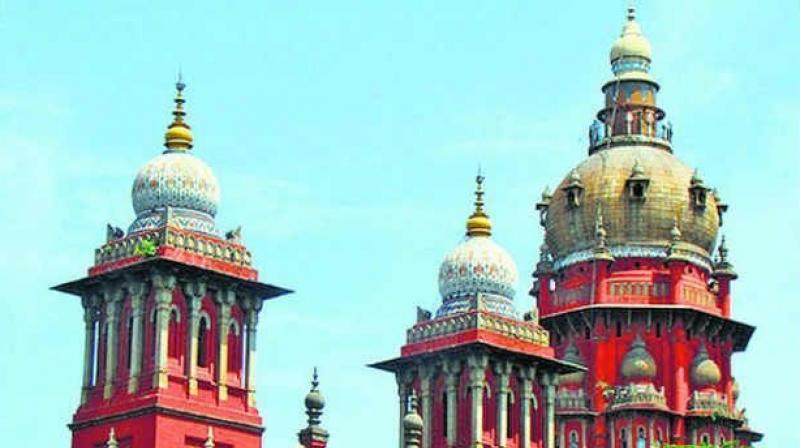Salem-Chennai green corridor: Validity of land acquisition law for expressway upheld
A batch of writ petitions filed before the court challenged the proposed Rs 10,000 crore Salem-Chennai Greenfield Expressway.

Chennai: Upholding constitutional validity of section 105 of the Right to Fair Compensation and Transparency in Land Acquisition, Rehabilitation and Resettlement Act, 2013, and the Fourth Schedule to the Act and entire land acquisition proceedings initiated under the National Highways Act, 1956 for the proposed Salem-Chennai 8-lane Greenfield Express, Madras high court has dismissed a petition challenging the legislation.
The division bench comprising Justices T.S. Sivagnanam and V. Bhavani Subbaroyan, before which a PIL from G. Sundarrajan, a trustee of ‘Poovulagin Nanbargal’, came up for hearing on Tuesday, refused to declare the legislations as unconstitutional, null and void.
A batch of writ petitions filed before the court challenged the proposed '10,000 crore Salem-Chennai Greenfield Expressway.
Besides this PIL from ‘Poovulagin Nanbargal’, PMK MP, Dr Anbumani Ramadoss and an advocate A.P. Suryaprakasam and a few farmers filed petitions before the court.
However, the judges, made it clear that it is not dealing with the validity of acquisition proceedings for the proposed highway, which is the subject matter of challenge in a batch of writ petitions but confine only to the challenge to the constitutional validity Section 105 and the Fourth Schedule of the RFCT Act.
The judges said, “We hold that Section 105 and Fourth Schedule of the Right to Fair Compensation and Transparency in Land Acquisition, Rehabili-
-tation and Resettlement Act, is neither unconstitutional nor null and void and are held to be valid piece of legislation.
A law made by Parliament or legislature can be struck down by courts on two grounds and two grounds alone, namely; (i) lack of legislative competence & (ii) violation of any of the fundamental rights guaranteed in part III of the Constitution or of any other constitutional provision. It was held that there is no third ground on which a law can be struck down, the bench said.
“If the prayer sought for by the petitioner to declare Section 105 as unconstitutional is granted, the land owners would be gravely prejudiced. This is so because; the manner of determination of compensation is more advantageous to the land owner under the RFCT Act. The NH Act does not provide for the procedure for rehabilitation and resettlement nor setting up of infrastructural facilities as envisaged in Schedule 1, 2 & 3 of the RFCT Act. Thus, if Section 105 is struck down, the NH Act will govern the field and the acquisition will proceed under the NH Act and the compensation will have to be determined under the said Act. This undoubtedly would be prejudicial to the interest of the land owners. Therefore, we fail to understand as to what benefit would accrue to the land owners by declaring Section 105 as unconstitutional. Parallely the important question would be, “can this being a ground to declare Section 105 as ultra vires, irrational with no intelligible differentia,” the bench noted.

